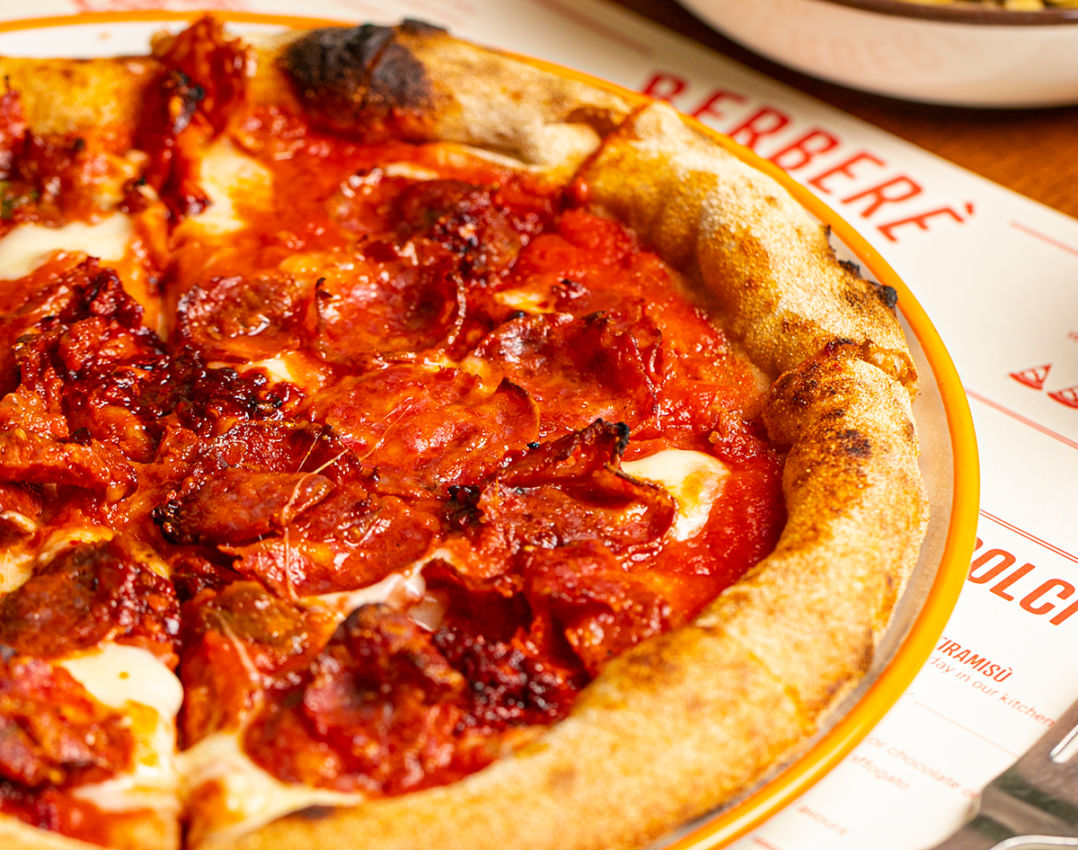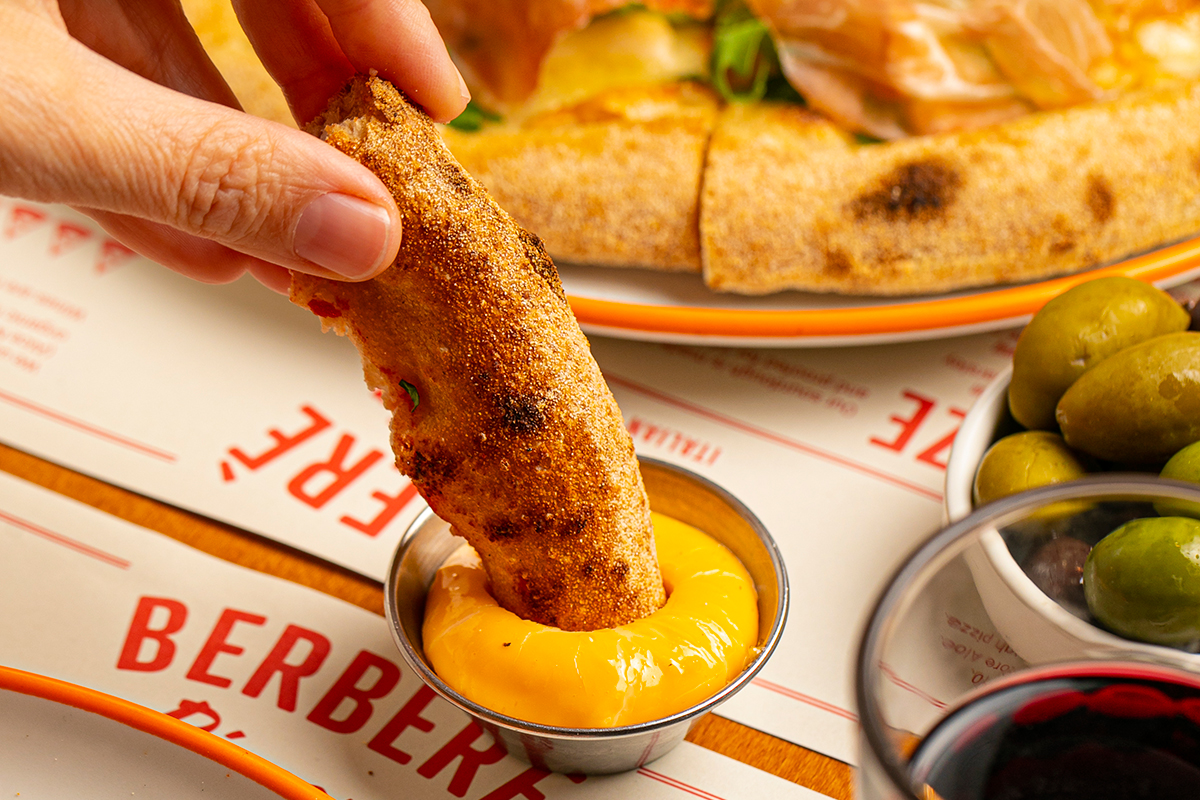
In 2010 Matteo and Salvatore Aloe founded Berberè in Bologna. They opened the first pizzeria in Castel Maggiore, near Bologna, and a few years later they managed to open in the city center as well. Now they have 15 stores throughout Italy and two located in London, one in Clapham and one in Kentish Town.
“Our focus to this day is making people happy, while serving delicious pizza in lovely and relaxed places”, Matteo says. He adds that the first thing Italians look for when they go out is definitely quality: “The freshness of the ingredients, their origins and the way they are produced in terms of sustainability and artisanship are all features Italian consumers take into consideration, not only when they go to a regular restaurant, but also when they have a casual meal, like pizza or a sandwich. High quality ingredients make in fact even the most simple dish incredibly tasty”. We asked Matteo a few questions about the two restaurants in London.
▶ What are the most popular dishes of your restaurant? How is your pizza offering featured?
Our most ordered pizza in London is the Diavola, with Neapolitan spicy salami, ‘nduja (calabrese spicy sausage), tomato and fiordilatte mozzarella. Then, as one of our all time most loved pizzas, we have the Prosciutto di Parma, fiordilatte mozzarella, burrata, orange infused oil and rocket. Our Margherita is definitely amongst one of the best classics, simply made with tomato, fiordilatte mozzarella and basil. The choice in our menu goes on with a selection of antipasti, salads and desserts. From our Salumi Platter to dishes such as Burrata, baked aubergines, basil & walnut pesto, there’s plenty to choose from. Not to be missed: the delicious Montanarine, deep fried balls made with pizza dough topped with tasty ingredients.


▶ What are the characteristics of your pizza? Do you refer to traditional Italian pizza? Do customers ask you to adapt it to local consumption habits?
We always felt the need to honor pizza as a symbol of Italian culture and that’s why we care deeply about quality, and put a lot of effort in researching and studying our product. All our doughs are freshly prepared on a daily basis by our pizzaioli, using water, semi-whole flour, salt and sourdough starter (which we have been keeping alive and well since our first opening). Each dough is then left to rise for 24 hours at room temperature, to develop its unique taste and consistency. The only way to always serve a high quality product and make each time the same crunchy, light pizza from Rome to London is to manage the unpredictability of this process. For this reason we believe professional training is an incredibly important part of our job and we make sure each person working in Berberè can acquire all the needed skills and make the most out of their talent.
Having two restaurants in London, we certainly faced a challenge. Our crust dippers are relatively new in our menu and it was in fact an idea that came to life in London and brought to our Italian restaurants as well! Our customers can enjoy their crusts dipping them in our freshly prepared sauces, like spicy ‘nduja & honey or basil & walnut pesto, together with more classic options.


▶ What are you currently working on in terms of ingredients? What products do you import from Italy for a perfect Italian pizza?
We constantly work on researching new quality products. Our search for the best ingredients never stops. In Italy we have a selected network of trusted suppliers, cultivated throughout the years. It’s important for us to have in our London restaurants all the key ingredients that make our pizza special, such as our organic flours and tomato sauce, but also cured meats, like ‘nduja from Calabria, and cheese, like mozzarella fiordilatte.
▶ What are your criteria for product selection? Which are the characteristics of the suppliers that you value the most?
When we choose our suppliers, we apply the same philosophy we have around pizza. We seek for artisanship, first and foremost, together with a strong work on ethics, sensibility for sustainability and high quality standards. Our ingredients are largely produced by organic farmers or small extensive livestock farming, as we believe it’s important to foster a rural culture around food.
